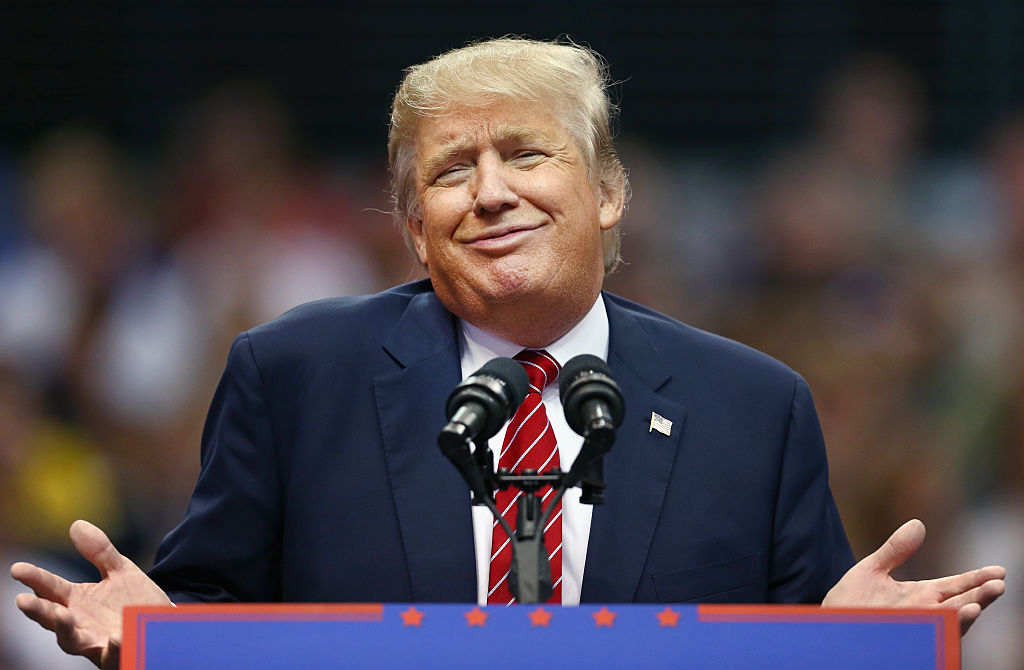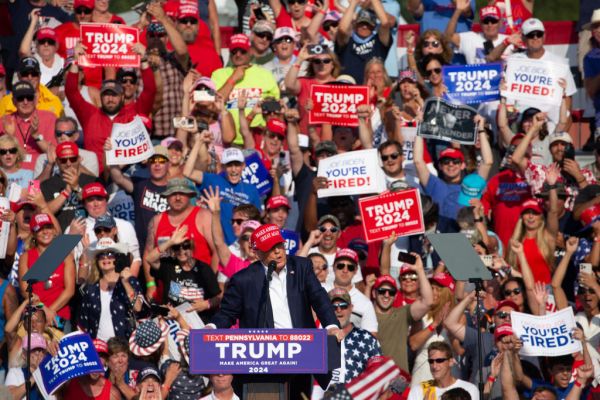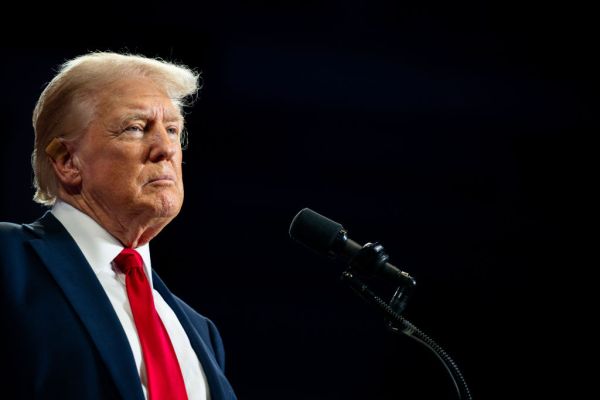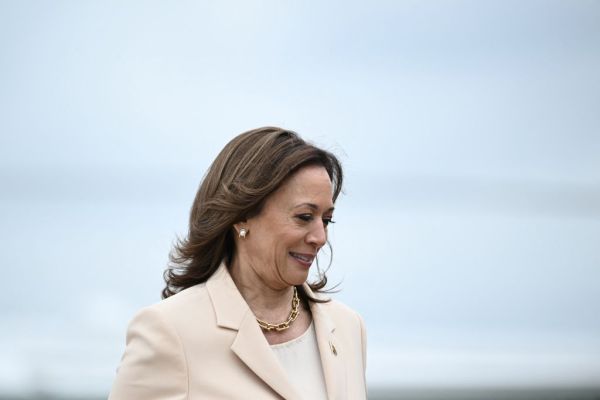Alfred Hitchcok told us that the difference between “surprise” and “suspense” lies in how much the audience knows. For Donald Trump, the difference between surprise and suspense is between 2016 and 2024.
Hitchcock understood that the anxiety about something that will happen is different from being startled “at the moment of the explosion.” And when Trump won the Republican presidential nomination in 2016, it came after a lot of moments of explosion.
There was some suspense at the end as Trump slowly, inevitably wrung the necks of the last candidates standing and the “contested convention” nonsense sputtered to its obvious conclusion. But prior to that, he was full of surprises—all the way back to the would-he-or-wouldn’t-he talk of springtime eight years ago.
Even after Trump was the Republican frontrunner, it wasn’t uncommon to hear politicos and pundits wonder whether he was really running to win or not. (Imagine thinking that the guy leading the race was going to quit while he was ahead.) It was true that Trump did not know what he was doing, but that added to the madcap energy of the outsider, the television star either oblivious to or disdainful of every rule. Not only did it keep Trump’s opponents, who were playing the old, grinding game, off balance, but the genuine spontaneity of the campaign kept the media’s rapt attention.
Trump, the thinking went, wouldn’t be around for long, so media outlets might as well soak up all the empty coverage calories while they could. Now, Trump has been around as a serious presidential contender for as long as Hillary Clinton was when she trudged into her last campaign eight years ago. And like her, nobody wonders how long Trump will be around, but whether he will ever leave.
As Trump hit the campaign trail over the weekend, there were certainly no surprises. After two months of a campaign in name only, Trump finally got around to doing what mainstream, top-tier candidates are supposed to do. He traveled to two early primary states, New Hampshire and South Carolina, speaking at party events and announcing high-profile campaign hires and big-name establishment endorsements. One imagines Lindsey Graham’s endorsement will be worth about as much to Trump in South Carolina as it was to John McCain (or Graham himself) in the Palmetto State primary.
But that’s what you have to do as a frontrunner, especially one who got into the race so early. When a sitting senator and the governor want a grip-and-grin press event with you, you sock those endorsements away. At least it may keep them away from another candidate, even if it makes you look lame.
Like the current occupant of the Oval Office—who has been running for president for so long that he once lost to Michael Dukakis—Trump talks too much, repeats himself, and lives in the past. Trump is hardly the dominant candidate in either state and may face both a favorite son and a favorite daughter. But he is still a whale of a contender: famous, feared, and funded—the MAGA Jeb Bush.
It’s actually been almost 12 years since Trump made his first campaign trip to New Hampshire.
In April of 2011, Trump chose the first-in-the-nation primary state for a victory lap celebrating that then-President Barack Obama had released his full birth certificate after years of pressure from a group of xenophobic obsessives, of which Trump had appointed himself the leader. Teasing an official presidential announcement before June, Trump arrived by black helicopter and traveled by limousine to campaign events.
The old hands of the Granite State were not impressed. “Any candidate who comes here who can’t release his schedule has a high hurdle to overcome,” sniffed one. They were, of course, wrong. Trump was a huge draw. A lucrative extension to his contract as a game-show host may have drawn Trump away from a risky presidential run, but it wasn’t for a lack of interest in New Hampshire. When he came back four years later, there was still no schedule and barely an organization. And the old hands were still sniffy. “He has disrespected the process in past cycles,” said one venerable GOPer, “and in my view he continues to do so this cycle, saying outlandish things.”
Trump was famous, chaotic, insurgent, unpredictable, and, most importantly, entertaining. He packed them in and became a phenomenon: a presidential candidate who people couldn’t stop talking about. Now, Trump is more famous than ever, but everything else is different. Trump looks and sounds old and what once seemed like a slap-dash, seat-of-the-pants campaign is now overstaffed, overmanaged, overfunded, and overexposed.
Trump certainly may win, and there is considerable suspense about who will do what, when, and to whom in this 18-month, multibillion-dollar hog waller. But there aren’t any surprises so far.









Please note that we at The Dispatch hold ourselves, our work, and our commenters to a higher standard than other places on the internet. We welcome comments that foster genuine debate or discussion—including comments critical of us or our work—but responses that include ad hominem attacks on fellow Dispatch members or are intended to stoke fear and anger may be moderated.